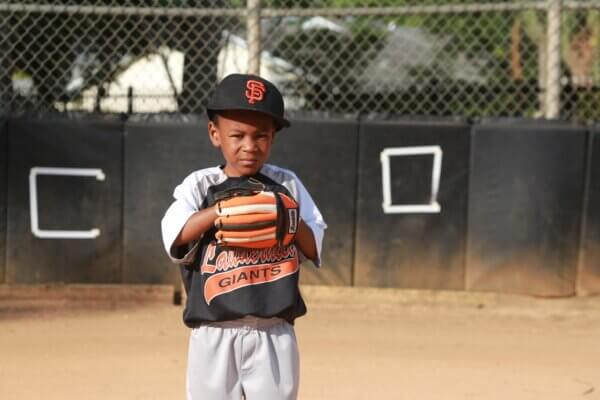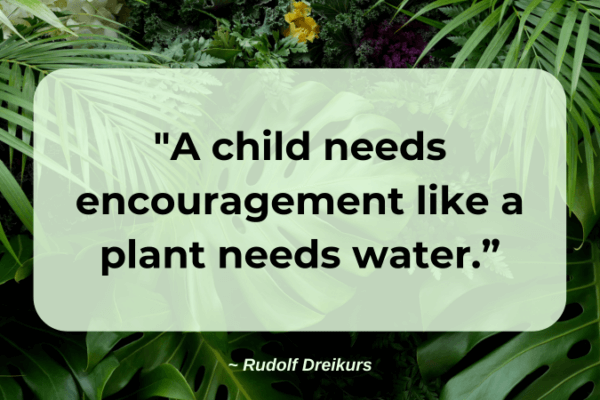Positive Discipline Parenting Blog
Sproutable's Positive Discipline blog.
Real tips. Real talk. Read & grow.
Latest post

Shifting from Worst Case Scenario to Trusting the Process With Our Teens
As I write this, it’s Spring! My favorite time of the year. I'm also tortured by it because we have days like today that are just glorious, and then we have days like three days[...]By Casey O'Roarty
0 ViewsPromoting Flexibility in Children
Something we’re always coming back to in Positive Discipline are the long-term goals and the traits we hope to see in the kiddos we care for once they reach adulthood. One life skill that I choose to focus on is being flexible. I’m not always the most flexible person in the room, and on occasion, I can miss out on something fun because I wasn’t being flexible enough. The good news for me, though, is that working with children gives me lots of opportunities to model, practice, and grow my own flexibility muscles.By Danielle Taylor
ViewsOpening Up to Your Resistance
When I work with parents, lots of families resonate with the idea of letting go and being open & present with their children. But in reality, we spend so much of our time resisting in parenting. We hold onto a vision that we’ve created for our children - a narrative, an expectation, an attitude about how things should play out. This isn’t even in our consciousness; we often don’t even realize we’re holding onto these ideas.By Casey O'Roarty
ViewsLiar, Liar: Why I Don’t Stress When my Nanny Kids Fib
Something I see pop up occasionally in online nannying groups is concern & frustration over nanny kiddos telling lies. I totally get it; nobody likes being lied to! I see suggestions of taking things away, lecturing & punishing, forced apologies, and even trying to scare kids out of lying. In fact, I remember being told “you’ll go to hell if you tell a lie” when I was a young child, and it was terrifying! I’ll offer you a different solution: let it go.By Danielle Taylor
Views3 tips for teaching kids to be a good sport
“That’s not fair” “You cheated!” “I never win!” Sound familiar? Most kids have a tough time navigating games where there is a clear winner, or when they feel a sense of unfairness. This is because they are still learning! Getting comfortable with losing, being flexible with not going first or getting the color game piece they want, and having patience taking turns all takes LOTS of practice. It is still cognitively challenging for young children to see “fairness” because they are still growing into their capacity for perspective taking, which is why it is important to start now!By Julietta Skoog
ViewsEmpowering Teens: The path from enabling to positive parenting
Parenting is a journey filled with ups and downs, and navigating the teenage years can be particularly challenging. Many parents strive to raise responsible, confident, and accountable young adults. However, one common pitfall in parenting is falling into the trap of enabling rather than empowering our teens. In this blog post, we'll explore the transition from enabling to positive parenting and how it can benefit both you and your teenagers.By Casey O'Roarty
ViewsThe Art of Parenting Teens: Taking a rest day
Parenting teenagers can be a challenging journey filled with ups and downs. It’s a phase of life where both parents and teens undergo significant changes, and navigating this transition can sometimes feel like an uphill battle. In this blog post, we’ll explore the importance of taking a “rest day” in your parenting approach and understanding […]By Casey O'Roarty
ViewsMoving from praise to encouragement
I’ve been soaking up everything I can about Positive Discipline for the last five years or so, and most of it has come fairly easily to me. It takes patience, intention, consistency, and effort, but most of the tools and strategies have always “clicked” for me. That being said, I am still, every day, working on moving from praise to encouragement with my nanny kids. This has been so challenging for me!By Danielle Taylor
ViewsMy Top 5 Toddler Parenting Tools
My little baby is now a full-blown toddler. Every stage of development has been such an exciting leap, but it’s at this stage that I’m getting a glimpse into the inner dialogue of my little one’s brain. He is learning to talk and along with language comes a newfound sense of independence and autonomy. This is great when I need to clean up after meals or shoot off a couple of emails, because he can now play by himself for longer periods of time, or even better, help me around the house. It’s a challenge when I have an agenda of what needs to happen now and it doesn’t align with HIS plan. I now understand why virtually every parent of a toddler says their child is “strong-willed”. There’s a parenting myth about the terrible two’s, but what I’ve found is that it doesn’t have to be so terrible if you have some solid Positive Discipline parenting tools in your back pocket.By Alanna Beebe
ViewsGetting comfortable with messy play
I’ve been working with kids for over 15 years, and I’ve cleaned up a fair share of messes in that time. I wasn’t someone who initially leaned into messy play because it can be gross, stressful, overwhelming, and because I could always come up with something else that’s fun to do instead. However, the longer I’ve been doing this, the more I’ve gotten not only comfortable, but actually have started enjoying, inviting, celebrating, and really leaning into messy play time! Here’s my why, my how, and some tips I’ve learned along the way.By Danielle Taylor
ViewsTips for validating teens
I like to think of validation as a way to be human to human with my kids. I want them to have the experience of feeling seen. When we validate, it’s an opportunity to let our teens know we can handle them being in their emotions and that we have faith in them to navigate that. Validation improves relationships, deescalates conflict and intense emotions, shows we’re listening without judgment, and that we care. I also think of validation as the opening of a door: when our kids and teens feel seen and not judged, they’re so much more likely to move into a receptive, problem-solving state.By Casey O'Roarty
Views











